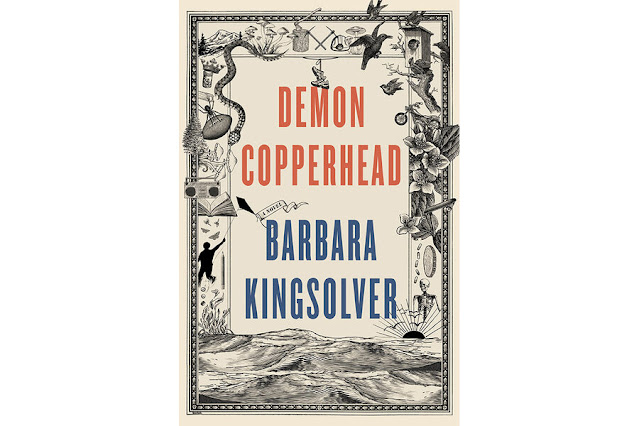I'll start with the good one, Demon Copperhead by Barbara Kingsolver.
Barbara Kingsolver wrote one of my favourite books of all time The Poisonwood Bible so when I saw she had a new book out, I was excited to read it. I didn't know much about it other than it was inspired by Dickens' David Copperfield. I didn't ever read that book and I'm glad I hadn't because the characters in this novel are closely matched up to Dickens' characters and if I knew who everyone was ahead of time the ending would have been spoiled for me. It is very clever of the author to do this, and I may take a spin through David Copperfield so I can better appreciate what she did with Demon.
The overarching theme of both books is institutional poverty. In the modern Demon Copperfield, the main character is born into poverty, spends time in foster care, and is met with many challenges and hardships. Despite that he has true and meaningful relationships with many friends and family members, and you keep rooting for him despite some of his poor choices.
After I finished the book I read some reviews and two phases I read captured my feelings - I was left feeling "bereft" after finishing the book, and it "broke my heart open". I think this book, like The Poisonwood Bible, will stick with me for awhile and since I had to buy my own copy (I couldn't renew my library copy) I will probably read it again. I've been telling everyone I know to read it.
Since there are aspects of the opioid crisis featured in the book, with some very poignant comments about it, I am now watching Dopesick and will follow that up with Painkiller.
The other book I tried reading this month was The Beguiling by Zsuzsi Gartner.
This one was the last one on my reading list for 2023 and I was excited to start it. It was on the Giller Prize shortlist, which is usually a good sign, but I may be rethinking these Giller Prize contenders as a few of them have fallen flat for me.
The Beguiling started out well - the main character's cousin, with whom she is very close, has suffered a strange attack and has had his hands amputated. He is telling her what has happened up to the point of his memory being gone. I thought that maybe she would spend the book figuring out what happened to him and tracking down his attackers. She did not. Instead she suddenly finds herself being the listener of random peoples' confessions. People she meets just start telling her their deepest, darkest confessions. The book then ends up being a bunch of their stories, with only small interludes of the main character's life. Now, the first few stories were interesting, but about halfway through the book, I was having a hard time understanding who was who, and then I realized we're probably never going to find out what happened to her cousin, so I started flipping through the confessions to the interlude parts. At the end she even had plants and animals communicating with her to tell their confessions - I know, what in the world?! She lost me and I did not care to just put the book down leaving most of it unread.
I did a bit of Googling about the book and found out the author is a prolific short story writer and this was her first novel. This all makes sense now, because she was basically writing short stories and trying to link them together in this novel. I don't think it worked.


No comments:
Post a Comment